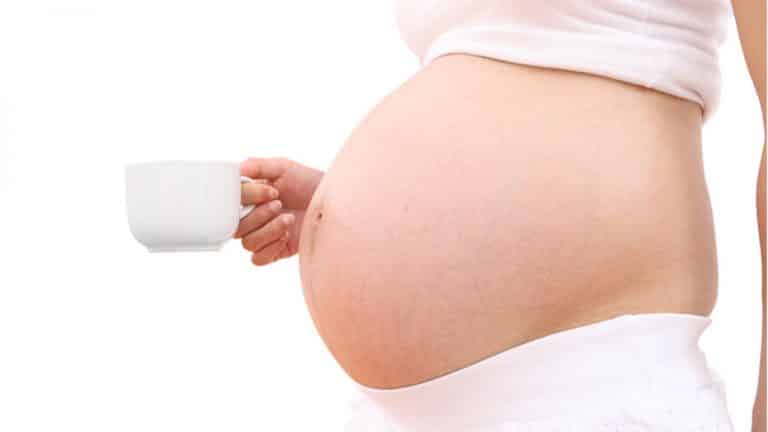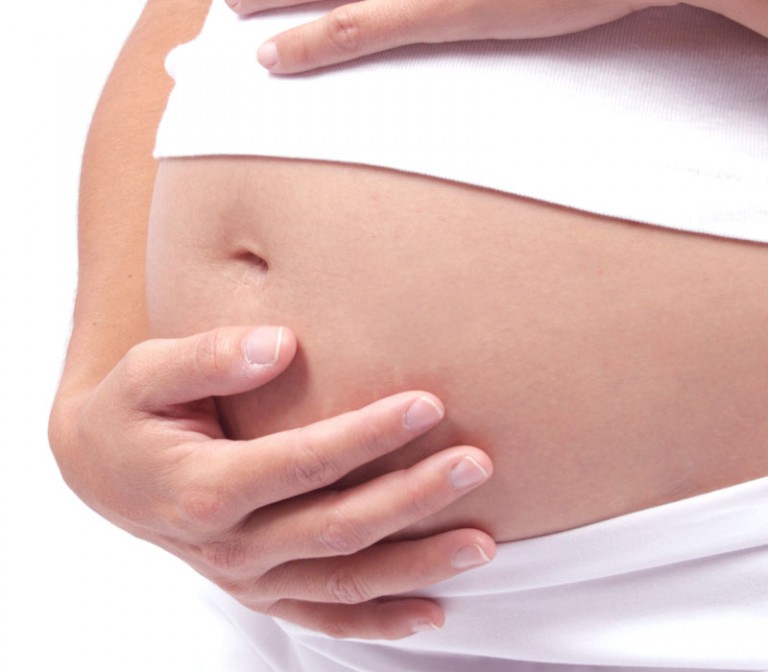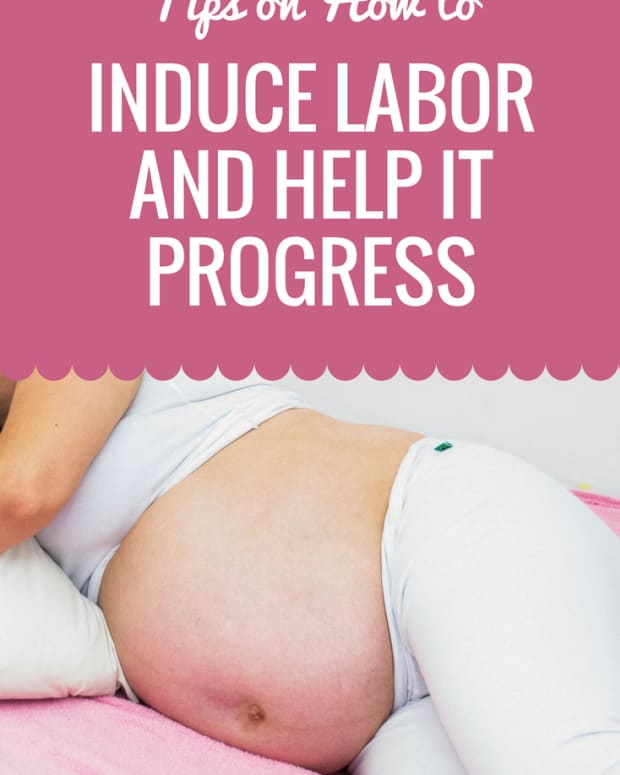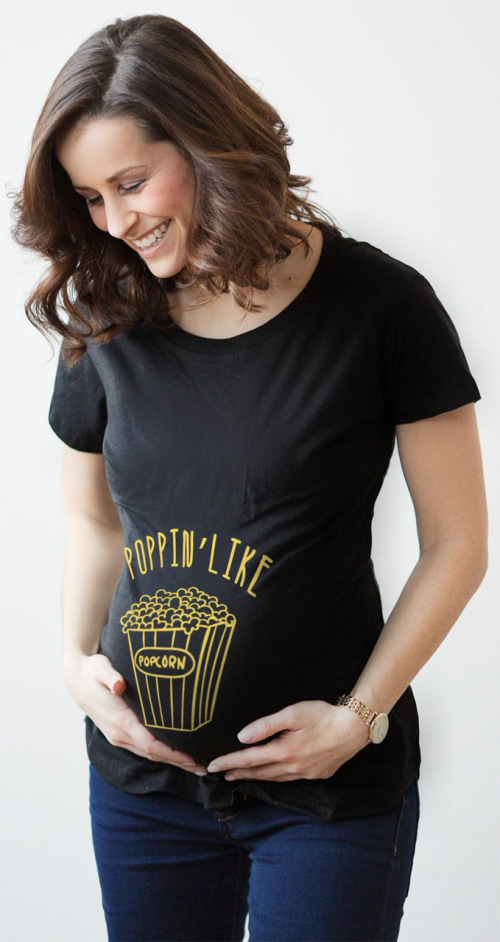Side effects of caffeine during pregnancy
Caffeine During Pregnancy: How Much Is Safe?
Caffeine is a stimulant that provides a boost of energy and makes you feel more alert.
It’s consumed worldwide, with coffee and tea being two of the most popular sources (1).
While caffeine is considered safe for the general population, health authorities advise limiting your intake when expecting (2).
This article discusses how much caffeine you can safely consume during pregnancy.
For many people, caffeine has favorable effects on energy levels, focus and even migraines. Additionally, some caffeinated beverages offer health benefits.
However, caffeine can cause negative side effects in some and may pose risks during pregnancy.
Potential benefits
Caffeine is proven to improve energy levels and focus.
Research shows that caffeine stimulates your brain and central nervous system, which may help you stay awake and sharpen mental alertness (2, 3).
It may also be effective at treating headaches when combined with pain relievers, such as acetaminophen (4).
Additionally, some caffeinated beverages contain antioxidants, beneficial compounds that can protect your cells from damage, reduce inflammation and ward off chronic disease (5, 6).
Green tea is especially high in antioxidants, but other teas and coffee contain substantial amounts as well (7, 8).
Potential risks
Caffeine has many potential benefits, but there’s concern that it may be harmful when consumed during pregnancy.
Pregnant women metabolize caffeine much more slowly. In fact, it can take 1.5–3.5 times longer to eliminate caffeine from your body. Caffeine also crosses the placenta and enters the baby’s bloodstream, raising concerns that it can affect the baby’s health (9).
The American College of Obstetricians Gynecologists (ACOG) states that moderate amounts of caffeine — less than 200 mg per day — are not linked to an increased risk of miscarriage or preterm birth (10).
However, research suggests that intakes greater than 200 mg per day may raise the risk of miscarriage (11).
Additionally, some evidence suggests that even low intakes of caffeine may result in low birth weight. For example, one study found that low intakes of 50– 149 mg per day during pregnancy were associated with a 13% higher risk of low birth weight (9, 12).
However, more research is needed. The risk of miscarriage, low birth weight and other adverse effects due to higher intakes of caffeine during pregnancy remains largely unclear.
Other negative side effects of caffeine include high blood pressure, rapid heartbeat, increased anxiety, dizziness, restlessness, abdominal pain and diarrhea (2, 13).
summaryCaffeine may boost energy levels, improve focus and help relieve headaches. However, it may pose risks when consumed in high amounts during pregnancy, such as an increased risk of miscarriage and low birth weight.
The ACOG recommends limiting your caffeine intake to 200 mg or less if you are pregnant or trying to become pregnant (14).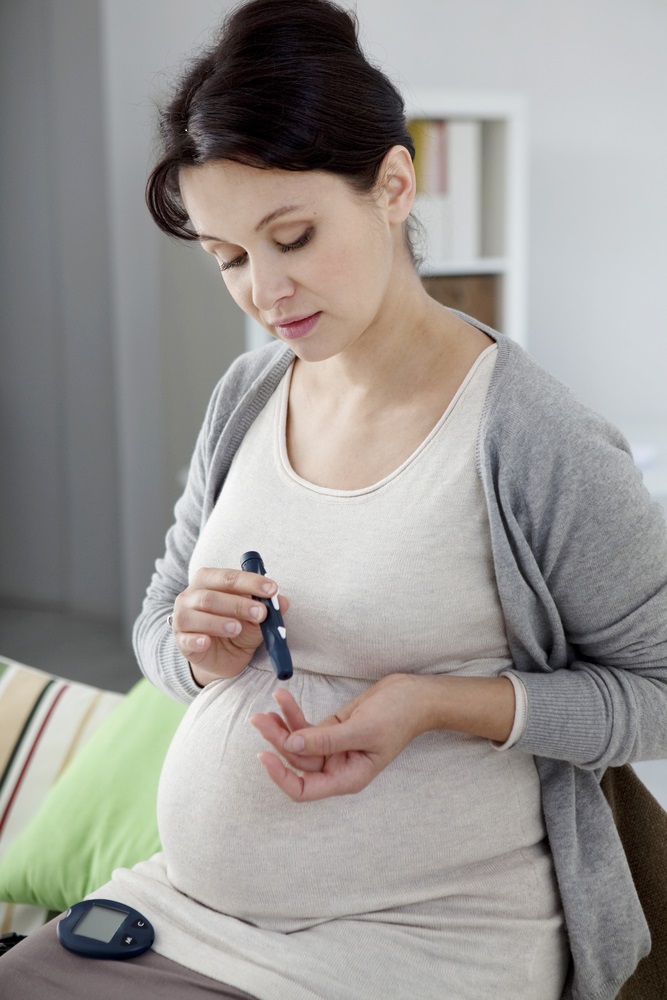
Depending on the type and preparation method, this is equivalent to about 1–2 cups (240–580 ml) of coffee or about 2–4 cups (240–960 ml) of brewed tea per day (1).
Along with limiting your intake, you should also consider the source.
For instance, the Academy of Nutrition and Dietetics recommends avoiding energy drinks entirely during pregnancy.
In addition to caffeine, energy drinks usually contain high amounts of added sugars or artificial sweeteners, which lack nutritional value.
They also contain various herbs, such as ginseng, that have been deemed unsafe for pregnant women. Other herbs used in energy drinks have not been adequately studied for their safety during pregnancy (15).
Moreover, you should avoid certain herbal teas during pregnancy, including those made with chicory root, licorice root or fenugreek (16, 17).
The following herbal teas have been reported as safe during pregnancy (17):
- ginger root
- peppermint leaf
- red raspberry leaf — limit your intake to 1 cup (240 mL) per day during the first trimester
- lemon balm
As with any herbal remedy, it’s a good idea to consult with your doctor before drinking herbal teas during pregnancy.
Instead, consider caffeine-free beverages, such as water, decaf coffee and safe caffeine-free teas.
summaryDuring pregnancy, limit caffeine to less than 200 mg per day and avoid energy drinks entirely. Some herbal teas may be safe to drink, but it’s always best to check with your doctor first.
Coffee, teas, soft drinks, energy drinks and other beverages contain varying amounts of caffeine.
Here’s a list of the caffeine content in some common drinks (1, 18):
- Coffee: 60–200 mg per 8-oz (240-ml) serving
- Espresso: 30–50 mg per 1-oz (30-ml) serving
- Yerba mate: 65–130 mg per 8-oz (240-ml) serving
- Energy drinks: 50–160 mg per 8-oz (240-ml) serving
- Brewed tea: 20–120 mg per 8-oz (240-ml) serving
- Soft drinks: 30–60 mg per 12-oz (355-ml) serving
- Cocoa beverage: 3–32 mg per 8-oz (240-ml) serving
- Chocolate milk: 2–7 mg per 8-oz (240-ml) serving
- Decaffeinated coffee: 2–4 mg per 8-oz (240-ml) serving
Note that caffeine is also found in some foods. For example, chocolate can contain 1–35 mg of caffeine per ounce (28 grams). Typically, dark chocolate has higher concentrations (18).
For example, chocolate can contain 1–35 mg of caffeine per ounce (28 grams). Typically, dark chocolate has higher concentrations (18).
Additionally, certain medications like pain relievers may contain caffeine, and it’s frequently added to supplements, such as weight loss pills and pre-workout mixes.
Be sure to check with your doctor if you’re concerned about the caffeine content of your diet.
summaryThe amount of caffeine in coffee, teas, soft drinks, energy drinks and other beverages varies. Foods like chocolate, certain medications and various supplements often contain caffeine as well.
Caffeine is popularly consumed worldwide. It’s been shown to boost energy levels, improve focus and even relieve headaches.
Though caffeine has benefits, health authorities recommend watching your intake during pregnancy.
Most experts agree that caffeine is safe during pregnancy if limited to 200 mg or less per day. This equals about 1–2 cups (240–580 mL) of coffee or 2–4 cups (540–960 mL) of caffeinated tea.
Caffeine During Pregnancy: How Much Is Safe?
Caffeine is a stimulant that provides a boost of energy and makes you feel more alert.
It’s consumed worldwide, with coffee and tea being two of the most popular sources (1).
While caffeine is considered safe for the general population, health authorities advise limiting your intake when expecting (2).
This article discusses how much caffeine you can safely consume during pregnancy.
For many people, caffeine has favorable effects on energy levels, focus and even migraines. Additionally, some caffeinated beverages offer health benefits.
However, caffeine can cause negative side effects in some and may pose risks during pregnancy.
Potential benefits
Caffeine is proven to improve energy levels and focus.
Research shows that caffeine stimulates your brain and central nervous system, which may help you stay awake and sharpen mental alertness (2, 3).
It may also be effective at treating headaches when combined with pain relievers, such as acetaminophen (4).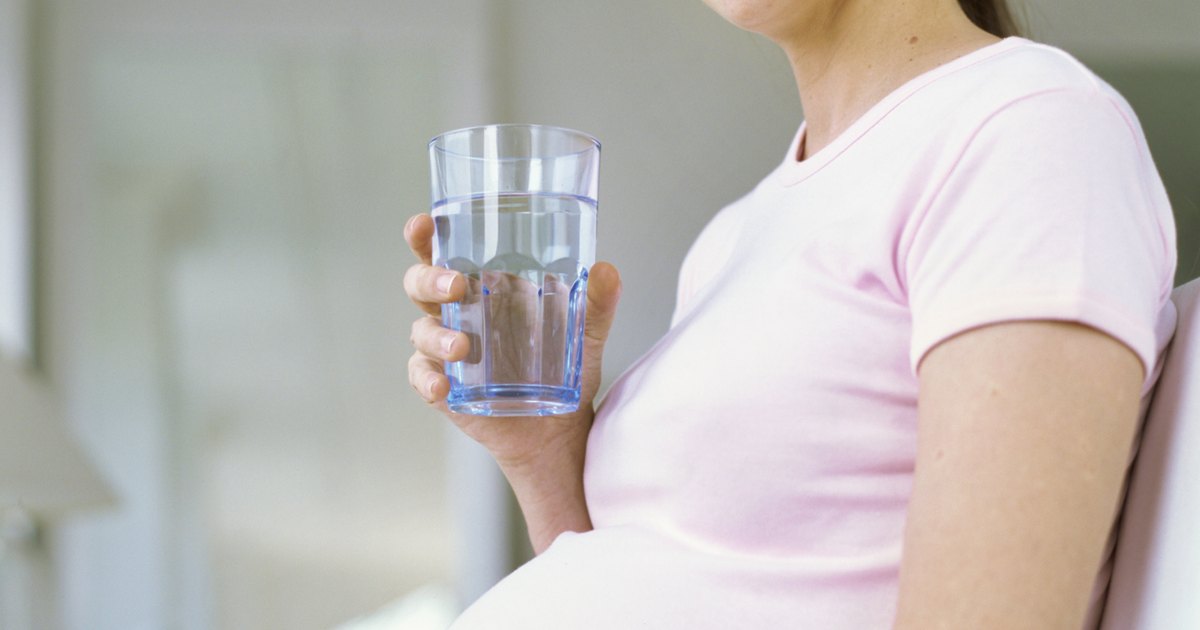
Additionally, some caffeinated beverages contain antioxidants, beneficial compounds that can protect your cells from damage, reduce inflammation and ward off chronic disease (5, 6).
Green tea is especially high in antioxidants, but other teas and coffee contain substantial amounts as well (7, 8).
Potential risks
Caffeine has many potential benefits, but there’s concern that it may be harmful when consumed during pregnancy.
Pregnant women metabolize caffeine much more slowly. In fact, it can take 1.5–3.5 times longer to eliminate caffeine from your body. Caffeine also crosses the placenta and enters the baby’s bloodstream, raising concerns that it can affect the baby’s health (9).
The American College of Obstetricians Gynecologists (ACOG) states that moderate amounts of caffeine — less than 200 mg per day — are not linked to an increased risk of miscarriage or preterm birth (10).
However, research suggests that intakes greater than 200 mg per day may raise the risk of miscarriage (11).
Additionally, some evidence suggests that even low intakes of caffeine may result in low birth weight. For example, one study found that low intakes of 50– 149 mg per day during pregnancy were associated with a 13% higher risk of low birth weight (9, 12).
However, more research is needed. The risk of miscarriage, low birth weight and other adverse effects due to higher intakes of caffeine during pregnancy remains largely unclear.
Other negative side effects of caffeine include high blood pressure, rapid heartbeat, increased anxiety, dizziness, restlessness, abdominal pain and diarrhea (2, 13).
summaryCaffeine may boost energy levels, improve focus and help relieve headaches. However, it may pose risks when consumed in high amounts during pregnancy, such as an increased risk of miscarriage and low birth weight.
The ACOG recommends limiting your caffeine intake to 200 mg or less if you are pregnant or trying to become pregnant (14).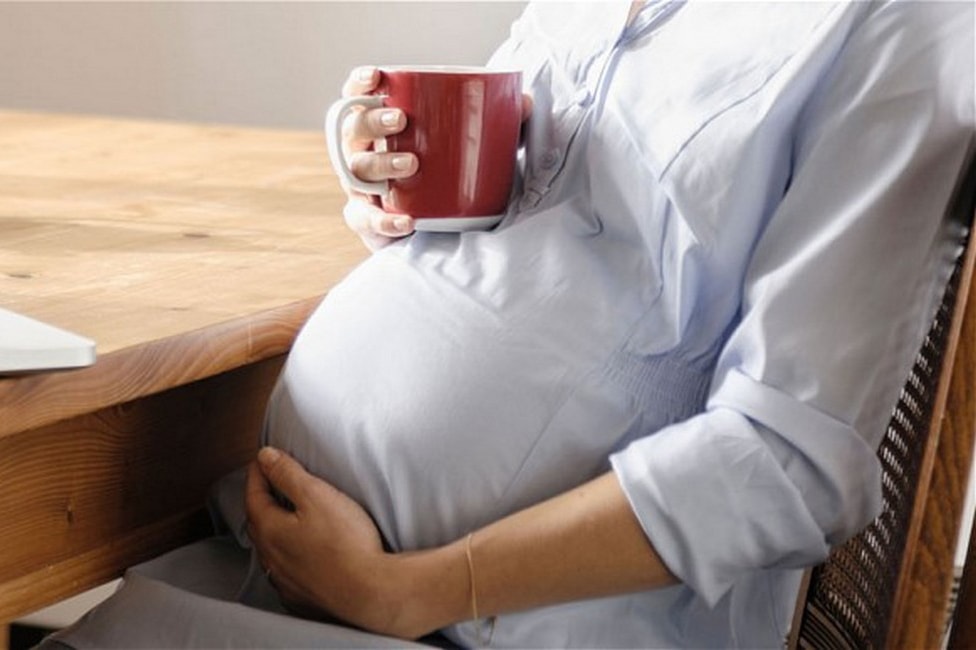
Depending on the type and preparation method, this is equivalent to about 1–2 cups (240–580 ml) of coffee or about 2–4 cups (240–960 ml) of brewed tea per day (1).
Along with limiting your intake, you should also consider the source.
For instance, the Academy of Nutrition and Dietetics recommends avoiding energy drinks entirely during pregnancy.
In addition to caffeine, energy drinks usually contain high amounts of added sugars or artificial sweeteners, which lack nutritional value.
They also contain various herbs, such as ginseng, that have been deemed unsafe for pregnant women. Other herbs used in energy drinks have not been adequately studied for their safety during pregnancy (15).
Moreover, you should avoid certain herbal teas during pregnancy, including those made with chicory root, licorice root or fenugreek (16, 17).
The following herbal teas have been reported as safe during pregnancy (17):
- ginger root
- peppermint leaf
- red raspberry leaf — limit your intake to 1 cup (240 mL) per day during the first trimester
- lemon balm
As with any herbal remedy, it’s a good idea to consult with your doctor before drinking herbal teas during pregnancy.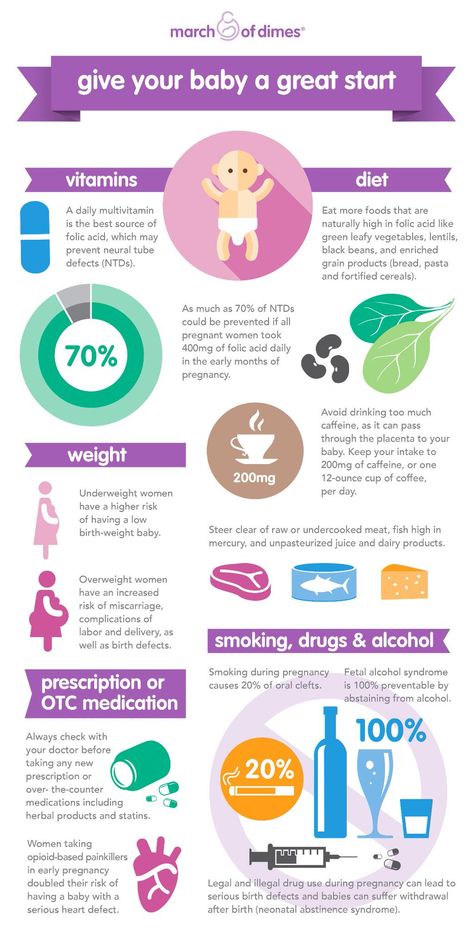
Instead, consider caffeine-free beverages, such as water, decaf coffee and safe caffeine-free teas.
summaryDuring pregnancy, limit caffeine to less than 200 mg per day and avoid energy drinks entirely. Some herbal teas may be safe to drink, but it’s always best to check with your doctor first.
Coffee, teas, soft drinks, energy drinks and other beverages contain varying amounts of caffeine.
Here’s a list of the caffeine content in some common drinks (1, 18):
- Coffee: 60–200 mg per 8-oz (240-ml) serving
- Espresso: 30–50 mg per 1-oz (30-ml) serving
- Yerba mate: 65–130 mg per 8-oz (240-ml) serving
- Energy drinks: 50–160 mg per 8-oz (240-ml) serving
- Brewed tea: 20–120 mg per 8-oz (240-ml) serving
- Soft drinks: 30–60 mg per 12-oz (355-ml) serving
- Cocoa beverage: 3–32 mg per 8-oz (240-ml) serving
- Chocolate milk: 2–7 mg per 8-oz (240-ml) serving
- Decaffeinated coffee: 2–4 mg per 8-oz (240-ml) serving
Note that caffeine is also found in some foods.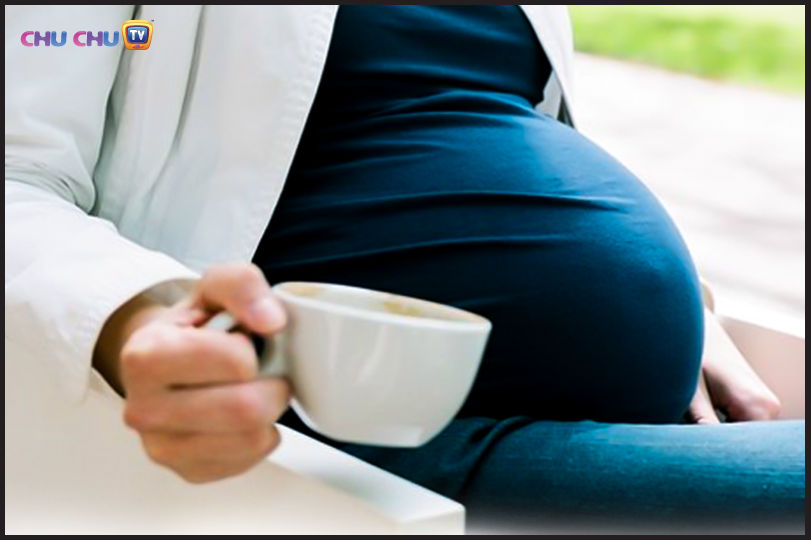 For example, chocolate can contain 1–35 mg of caffeine per ounce (28 grams). Typically, dark chocolate has higher concentrations (18).
For example, chocolate can contain 1–35 mg of caffeine per ounce (28 grams). Typically, dark chocolate has higher concentrations (18).
Additionally, certain medications like pain relievers may contain caffeine, and it’s frequently added to supplements, such as weight loss pills and pre-workout mixes.
Be sure to check with your doctor if you’re concerned about the caffeine content of your diet.
summaryThe amount of caffeine in coffee, teas, soft drinks, energy drinks and other beverages varies. Foods like chocolate, certain medications and various supplements often contain caffeine as well.
Caffeine is popularly consumed worldwide. It’s been shown to boost energy levels, improve focus and even relieve headaches.
Though caffeine has benefits, health authorities recommend watching your intake during pregnancy.
Most experts agree that caffeine is safe during pregnancy if limited to 200 mg or less per day. This equals about 1–2 cups (240–580 mL) of coffee or 2–4 cups (540–960 mL) of caffeinated tea.
| 💊 Composition of Caffeine-Sodium Benzoate tablets ✅ Use of Caffeine-Sodium Benzoate tablets Keep for yourself Search for analogues Interaction Description of the active ingredients of the preparation Caffeine-benzoate sodium tablets (Coffeine-Bensonate sodium) The scientific information provided is general and cannot be used to make decisions. Update date: 2020.04.27 Marketing authorization holder:USOLIE-SIBERIAN CHIMPHARMZAVOD JSC (Russia) ATX code: N06BC01 (Caffeine) Active substance: caffeine (caffeine) Ph.Eur. European Pharmacopoeia Dosage form
Release form, packaging and composition drug caffeine-benzoate sodium tablets
6 pcs. - non-cell packing contour. Clinical and pharmacological group: Psychostimulant and analeptic Pharmacotherapeutic group: Psychostimulant Pharmacological action Psychostimulant and analeptic, methylxanthine derivative. Competitively blocks central and peripheral A1 and A2 adenosine receptors. It inhibits the activity of PDE in the central nervous system, heart, smooth muscle organs, skeletal muscles, adipose tissue, promotes the accumulation of cAMP and cGMP in them (this effect is observed when used only in high doses). Stimulates the centers of the medulla oblongata (respiratory and vasomotor), as well as the center n.vagus, has a direct stimulating effect on the cerebral cortex. Increases mental and physical performance, stimulates mental activity, physical activity, shortens reaction time, temporarily reduces fatigue and drowsiness. In small doses, the effect of stimulation prevails, and in large doses, the effect of depression of the nervous system. Speeds up and deepens breathing. Usually it has a positive ino-, chrono-, batmo- and dromotropic effect (since the effect on the CCC consists of a direct stimulating effect on the myocardium and a simultaneous excitatory effect on the n.vagus centers, the resulting effect depends on the predominance of one or another action). It stimulates the vasomotor center and has a direct relaxing effect on the vascular wall, which leads to the expansion of the vessels of the heart, skeletal muscles and kidneys, while the tone of the cerebral arteries increases (causes a narrowing of the cerebral vessels, which is accompanied by a decrease in cerebral blood flow and oxygen pressure in the brain). BP changes under the influence of vascular and cardiac mechanisms of caffeine influence: with normal initial BP, caffeine does not change or slightly increases it, and normalizes it with arterial hypotension. It has an antispasmodic effect on smooth muscles (including a bronchodilating effect), on the striated - stimulating. Increases the secretory activity of the stomach. It has a moderate diuretic effect, which is due to a decrease in the reabsorption of sodium and water ions in the proximal and distal renal tubules, as well as vasodilation of the kidneys and an increase in filtration in the renal glomeruli. Reduces platelet aggregation and histamine release from mast cells. Increases basal metabolism: increases glycogenolysis, increases lipolysis. PharmacokineticsWell absorbed after oral administration. C max in blood plasma is reached in 50-75 minutes. Plasma protein binding - 15%. After subcutaneous administration of V and in adults - 0. Caffeine is rapidly distributed in all organs and tissues of the body, penetrates the BBB and the placental barrier. Metabolism in the liver is more than 90%, in children of the first years of life up to 10-15%. In adults, about 80% of a dose of caffeine is metabolized to paraxanthine, about 10% to theobromine, and about 4% to theophylline. These compounds are subsequently demethylated to monomethylxanthinates and then to methylated uric acids. T 1/2 in adults is 3.9-5.3 hours (sometimes up to 10 hours), in newborns (up to 4-7 months of life) - 65-130 hours Excretion of caffeine and its metabolites is carried out by the kidneys (1-2% is excreted unchanged in adults, up to 85% in newborns). Indications of the active substances of the drug Caffeine-benzoate sodium tablets For oral administration: decreased mental and physical performance, drowsiness, headache of vascular origin (including migraine), moderate arterial hypotension. For s / c administration: decreased mental and physical performance, drowsiness, headache of vascular origin (including migraine), moderate arterial hypotension, respiratory depression (including with mild poisoning with narcotic analgesics and hypnotic drugs , carbon monoxide, neonatal asphyxia), restoration of pulmonary ventilation after the use of general anesthesia. For subconjunctival administration: ciliochoroidal detachment in adults. Open list of ICD-10 codes
Dosage regimen The route of administration and dosing regimen of a particular drug depends on its form of release and other factors. Apply inside, s / c and subconjunctival. The dose, method and regimen of application, duration of therapy is determined individually, depending on the indications, the clinical situation, the age of the patient and the dosage form. Side effectsFrom the nervous system: agitation, anxiety, tremor, restlessness, headache, dizziness, epileptic seizures, increased reflexes, tachypnea, tinnitus, insomnia; with sudden cancellation - increased inhibition of the central nervous system, increased fatigue, drowsiness, muscle tension. From the side of the cardiovascular system: palpitations, tachycardia, arrhythmias, increased blood pressure. From the digestive system: nausea, vomiting, exacerbation of peptic ulcer. Other: nasal congestion, with long-term use - addiction, drug dependence; with subconjunctival administration - short-term pain, slight local edema with the possible appearance of single petechiae. Contraindications for useHypersensitivity to caffeine and other xanthines; anxiety disorders (agoraphobia, panic disorders), arterial hypertension, organic diseases of the cardiovascular system (including acute myocardial infarction, atherosclerosis), paroxysmal tachycardia, ventricular extrasystole, sleep disturbances; children's age - depending on the dosage form. Precautions: for glaucoma, irritability, old age, epilepsy and seizure tendency. Use in pregnancy and lactation Use during pregnancy only after consulting a doctor, in cases where the expected benefit to the mother outweighs the potential risk to the fetus or infant. Excessive use of caffeine during pregnancy can lead to spontaneous abortions, slowing of intrauterine development of the fetus, arrhythmias in the fetus; possible violations of the development of the skeleton when using large doses and slowing down the development of the skeleton against the background of lower doses. Caffeine passes into breast milk in small amounts, but accumulates in infants and may cause hyperactivity and insomnia. During the period of treatment, it is necessary to resolve the issue of stopping breastfeeding. Use in childrenMay be used in children according to indications, in doses and dosage forms recommended according to age. It is necessary to strictly follow the instructions in the instructions for caffeine preparations on contraindications for use in children of different ages of specific dosage forms of caffeine. Use in elderly patientsUse with caution in elderly patients. Special instructionsIt should be borne in mind that the sudden cessation of caffeine intake may lead to increased CNS inhibition (drowsiness, depression). The effect on the central nervous system depends on the type of nervous system and can be manifested both by excitation and inhibition of higher nervous activity. Due to the fact that the effect of caffeine on blood pressure consists of vascular and cardiac components, as a result, both the effect of stimulating the heart and oppression (weak) of its activity can develop. For apnea in newborns and in infants in the postoperative period (prophylaxis), caffeine or caffeine citrate is used, but not caffeine-sodium benzoate. Do not take caffeine before bed. Caffeine may be used alone or in combination therapy. Influence on the ability to drive vehicles and mechanisms During the period of treatment, patients should be careful when driving vehicles and engaging in other activities that require a high concentration of attention and speed of psychomotor reactions. Drug interactionsSimultaneous use reduces the effect of hypnotics and anesthetics. With simultaneous use, it is possible to enhance the action of antipyretic analgesics, salicylamide, naproxen. With the simultaneous use of estrogens (hormonal contraceptives, HRT agents), it is possible to increase the intensity and duration of caffeine action due to inhibition of the CYP1A2 isoenzyme by estrogens. With the simultaneous use of adenosine, caffeine reduces the increased heart rate and changes in blood pressure caused by adenosine infusion; reduces vasodilation due to the action of adenosine. With simultaneous use, it is possible to increase the bioavailability, absorption rate and plasma concentration of acetylsalicylic acid. Co-administration of mexiletine reduces caffeine clearance and increases plasma concentrations, presumably by mexiletine's inhibition of hepatic caffeine metabolism. Methoxsalen reduces the excretion of caffeine from the body with a possible increase in its effect and the development of a toxic effect. The combined use of caffeine with beta-blockers may lead to mutual suppression of therapeutic effects. Caffeine accelerates the absorption and enhances the action of cardiac glycosides, increases their toxicity. Due to the induction of microsomal liver enzymes under the influence of phenytoin, with its simultaneous use, the metabolism and excretion of caffeine are accelerated. Fluconazole and terbinafine cause a moderate increase in plasma caffeine concentration, ketoconazole - less pronounced. The most pronounced increase in AUC and decrease in clearance are observed with the simultaneous use of caffeine with enoxacin, ciprofloxacin, pipemidic acid; less pronounced changes - with pefloxacin, norfloxacin, fleroxacin. When used simultaneously, caffeine accelerates the absorption of ergotamine. Keep |
so is it still possible or not?
June 16, 2022 12:23 Olga Muraya
There are a number of strict dietary restrictions during pregnancy, but it is not necessary to completely eliminate coffee from your daily diet.
Photo by Anna Civolani/Unsplash.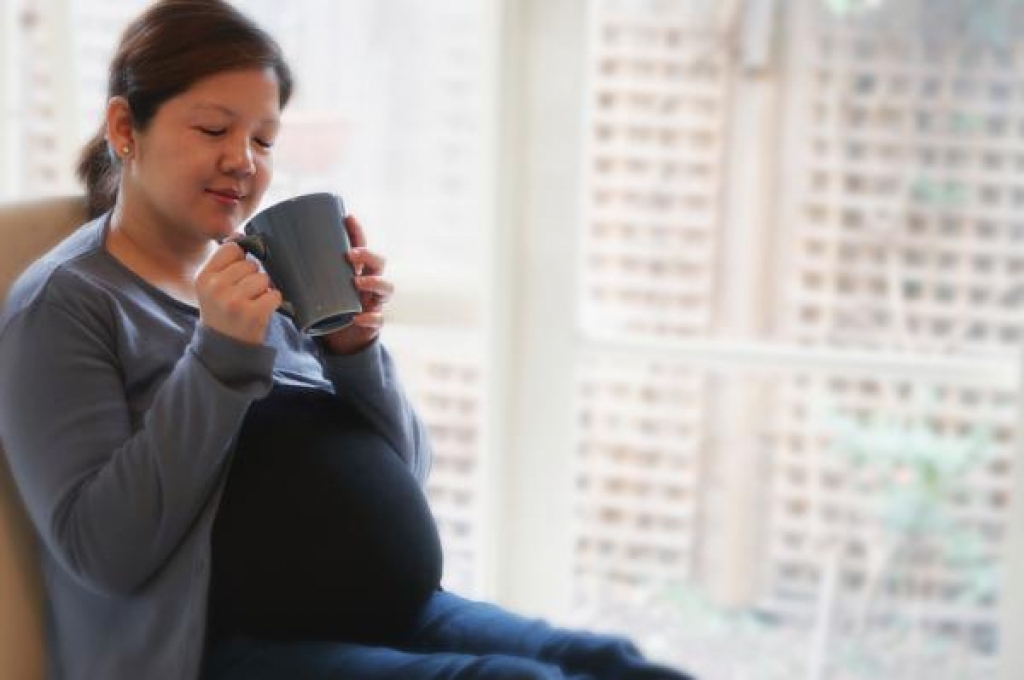
Researchers confirm that drinking coffee during pregnancy does not pose serious risks to the mother and her unborn child.
An international team of scientists has determined that daily coffee consumption does not increase the risk of preterm birth, miscarriage or stillbirth.
Researchers say that pregnant women can safely drink coffee at least every day without fear of side effects. But it is still necessary to limit its consumption to the recommended rate.
Recall that WHO recommends that pregnant women consume no more than 300 mg of caffeine per day. In the United States and some European countries, the maximum dose of caffeine is even less - 200 mg per day.
In general, these recommendations are equivalent to 1-3 cups of coffee per day, although the amount of caffeine in different coffee drinks can vary greatly.
Previous recommendations were based on observational studies.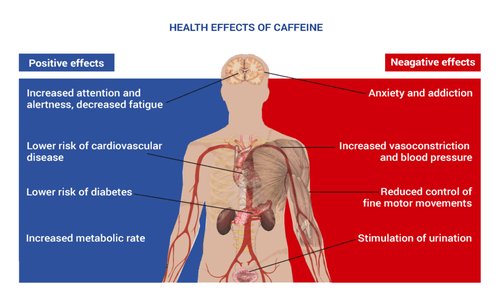 They make it difficult to separate coffee consumption from other risk factors such as smoking, alcohol or poor diet.
They make it difficult to separate coffee consumption from other risk factors such as smoking, alcohol or poor diet.
The authors of the new study wanted to find out whether coffee itself actually increases the risk of adverse pregnancy outcomes.
They relied on a study that confirmed that a certain set of genetic variants affects how much coffee we drink.
Of course, the researchers couldn't ask women to drink the prescribed amount of coffee during pregnancy to assess health risks. This would be highly unethical.
Instead, they used genetic analysis to mimic a randomized controlled trial. Let us explain that this is the highest quality standard of scientific work in the view of modern scientists.
The researchers used a method called Mendelian randomization. ( It is named after the eminent biologist Gregor Mendel. ) Scientists have studied whether eight genetic variants that predict how much a pregnant woman consumes coffee are also associated with birth outcomes.
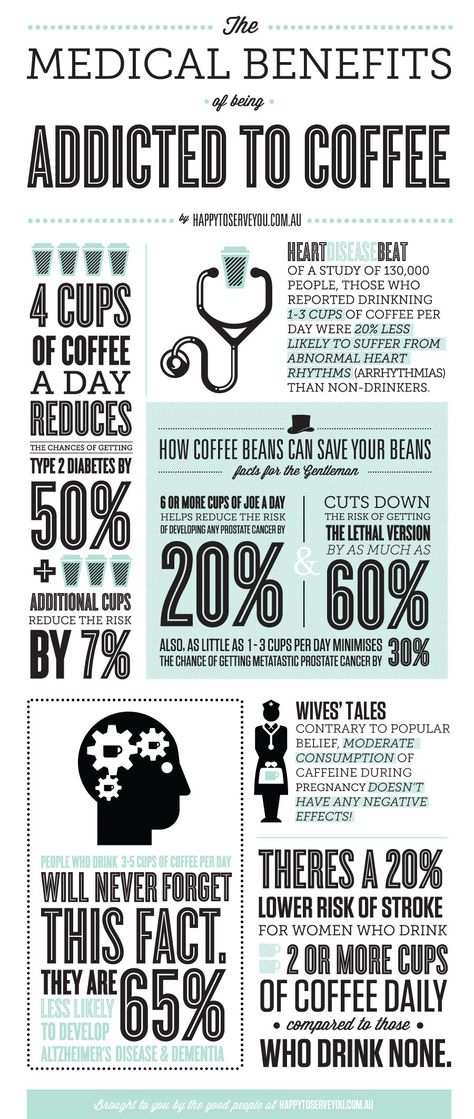 decisions about the use of a particular drug.
decisions about the use of a particular drug. 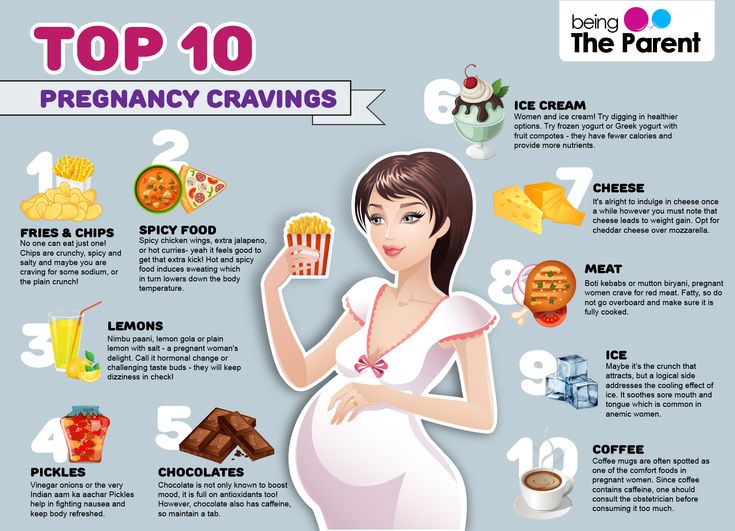
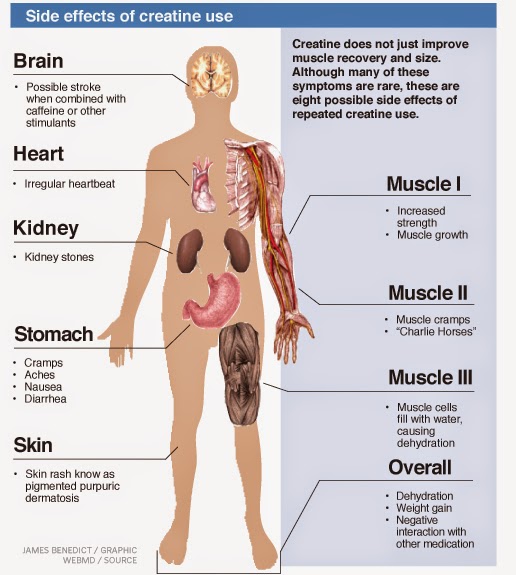 In high doses, it facilitates interneuronal conduction in the spinal cord, enhancing spinal reflexes.
In high doses, it facilitates interneuronal conduction in the spinal cord, enhancing spinal reflexes. 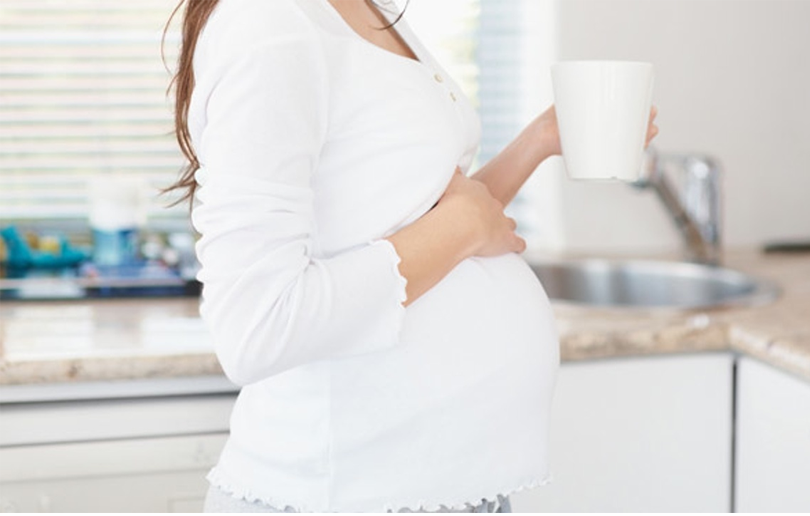
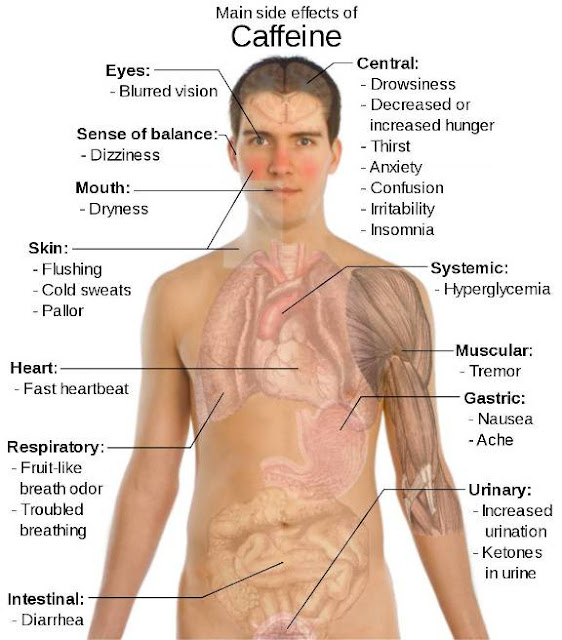 4-0.6 l/kg, in newborns - 0.78-0.92 l/kg. Plasma protein binding - 25-36%.
4-0.6 l/kg, in newborns - 0.78-0.92 l/kg. Plasma protein binding - 25-36%. 
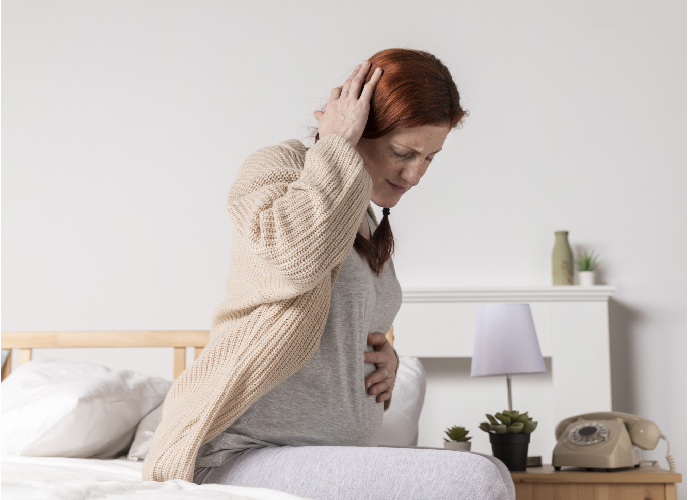 9
9 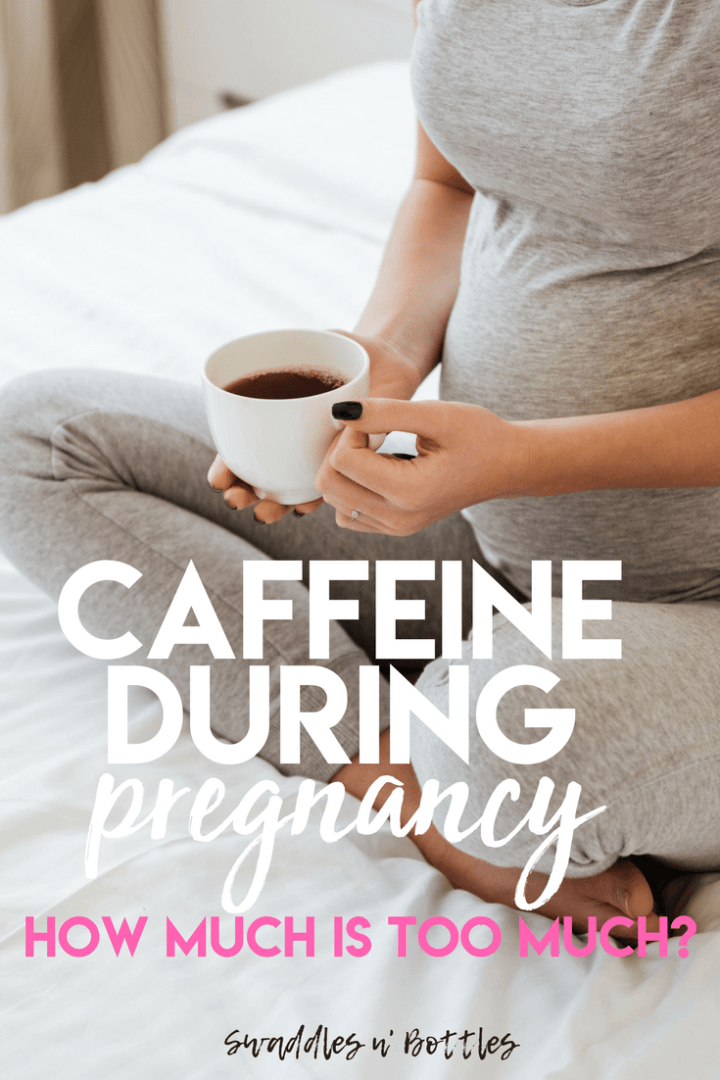 The optimal dosage regimen is determined by the doctor. Compliance of the dosage form of a particular drug with indications for use and dosing regimen should be strictly observed.
The optimal dosage regimen is determined by the doctor. Compliance of the dosage form of a particular drug with indications for use and dosing regimen should be strictly observed. 
